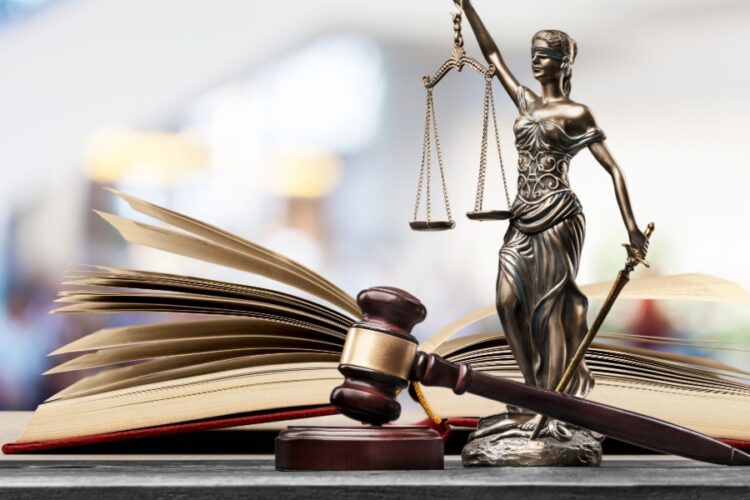Facing allegations of child molestation is a serious and life-altering event. Our responsibility as child molestation defense attorneys is to ensure every individual receives a fair trial and that their legal rights are protected throughout the process. We understand how overwhelming it can feel to be accused of such a crime and how much is at stake.
We focus on examining all aspects of the case, from the evidence presented to the conduct of the investigation. Our commitment is to provide clear guidance and a strong defense tailored to each client’s circumstances. Readers looking for straightforward information about what a child molestation defense attorney does will find direct and honest answers here.
Understanding Child Molestation Charges
Child molestation charges involve complex legal definitions, significant penalties, and mandatory actions from various authorities. These cases not only carry harsh legal consequences but also bring lasting stigma and involvement with state agencies.
Legal Definition and Types of Offenses
Child molestation is generally defined as any sexual act involving an adult and a minor, often including acts like inappropriate touching or exposing a child to sexual acts. The law may use terms like child sexual abuse or criminal sexual conduct (CSC), and many states have unique classifications for these offenses.
Common types include:
- Statutory rape: Engaging in sexual activity with a minor below the age of consent, regardless of perceived consent.
- Inappropriate touching: Any sexual contact with a child that is unwanted or unlawful.
- Possession or distribution of child pornography may also fall under child molestation or related charges.
Distinctions between felonies and misdemeanors depend on the act, the age of the minor, and prior history.
Consequences and Stigma
Conviction for child molestation or related sex crimes leads to severe penalties. Potential consequences include lengthy prison sentences, probation, and mandatory sex offender registration.
Registered sex offenders face long-term restrictions, such as where we can live or work. In addition, societal stigma is significant. Many people accused of these crimes experience damaged reputations, loss of employment, or alienation within their community.
The social impact can be long-lasting, affecting our relationships, family life, and mental health. Even unproven allegations can result in temporary or permanent loss of custody or visitation rights.
Mandatory Reporting and Child Protective Services
Certain professionals—including teachers, doctors, and social workers—are mandated by law to report any suspicion of child abuse or molestation. This process triggers investigations by law enforcement and Child Protective Services (CPS).
When CPS is notified, they may conduct interviews, visit our home, and review family history. These actions are designed to ensure the child’s safety but can be invasive and stressful.
The outcomes of CPS investigations may lead to family court proceedings, removal of children from the home, or further criminal charges. Navigating these procedures requires understanding the powers and limitations of CPS as well as our legal rights during the investigation.
Building an Effective Child Molestation Defense
A strong defense in child molestation cases requires a clear understanding of the law, careful analysis of evidence, and proactive strategies to confront false accusations. Protecting the accused’s rights and reputation is critical, and legal counsel plays a key role throughout the process.
False Accusations and Defense Strategies
False accusations of child molestation can arise from misunderstandings, custody battles, or manipulation. In these situations, it’s important to collect comprehensive evidence and establish a factual timeline.
Some effective defense strategies include:
- Highlighting inconsistencies in the accuser’s story
- Presenting credible witness testimony
- Using expert analysis of forensic evidence
- Demonstrating mitigating factors or motives for false allegations
We work diligently to challenge any questionable evidence and prevent overreaching by prosecutors, particularly in cases that involve sexual abuse, child pornography, or rape.
Role of a Child Molestation Defense Attorney
A child molestation defense attorney’s responsibility centers on providing sound legal guidance, conducting thorough investigation, and building the strongest possible defense. Our attorneys review police reports, interview witnesses, and consult with forensic experts specializing in sex crimes defense.
We also handle negotiations with prosecutors and strive to get charges dismissed or reduced when warranted. By understanding the complexities of these cases—including nuances within the legal community and sex offender laws—we ensure no detail is overlooked and represent our clients both in and out of court.
Protecting Your Rights and Reputation
The stigma of being accused of child molestation or related sex crimes can have immediate and long-lasting effects. Our focus is not only on legal defense, but also on protecting our clients’ privacy and minimizing unnecessary public exposure.
Key steps we take include:
- Filing motions to suppress unlawfully obtained evidence
- Requesting gag orders to limit media disclosure
- Advising clients on how to avoid actions that could harm their reputation or defense
We are committed to upholding our clients’ constitutional rights and making sure due process is followed throughout the criminal defense process.
Free and Confidential Case Evaluation
Anyone accused of child molestation deserves access to experienced legal help without fear of embarrassment or breach of confidentiality. We offer a free and confidential case evaluation, allowing prospective clients to speak directly with our child molestation defense lawyers.
During this case evaluation, we review the facts, answer questions, and explain the options for an effective defense. Everything discussed remains private between the client and our criminal defense attorney, ensuring a safe environment to address serious concerns and seek the best possible outcome.

